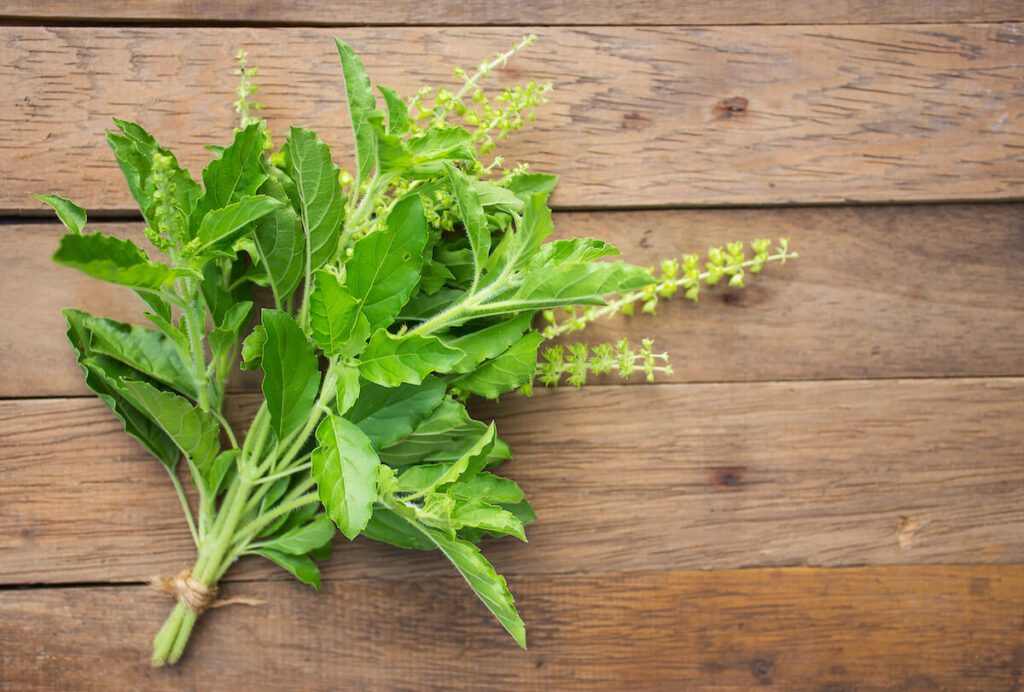
| When browsing herbal or natural remedies, Holy Basil or Tulsi is one of the most common “silver bullet” herbs sold on it’s own or in a variety of blends. Coming into the spotlight with the increasing popularity of adaptogens, Tulsi is known as Queen of Herbs. The first thing to know about Holy Basil is that it is not sweet basil and it will not “make your pesto divine”. But you can put it in a pesto if you feel inclined. Tulsi is a member of the mint family (as is Italian basil) and it’s native to India where it is a base ingredient in Ayurveda practice. It’s often used in ceremonies and consumed with ghee or honey. The plant is commonly grown around temples and homes. As a member of the mint family, it has a great flavor and can be used like oregano or mint in many recipes. It’s a durable, easy, windowsill plant to grow. When dabbling in western or “Whole Foods Herbalism”, Holy Basil is an easy place to start. Holy Basil is most commonly used as a tea, but it can be taken in capsules, tincture, or fresh. Adaptogens are known to calm or energize a system in the body depending on the need. According to The Botanical Institute: Adaptogens are different from other herbs in their ability to restore the balance of endocrine hormones, modulate the immune and nervous systems, and allow the body to maintain optimal homeostasis. The Alchemy of Herbs provides several areas Holy Basil can assist with. While it’s not something to primarily lean on, as an adaptogen Holy Basil can help restore balance to a variety of conditions. |
| Brain Fog: Adaptogens are often useful for restoring mental clarity and focus without a caffeine “buzz”. The Way of the Ayurvedic Herbs describes, “Tulsi is considered to expand and sharpen awareness, aid meditation, and promote compassion when taken as a medicine.” This makes sense considering the history of Tuslsi as the Ayurvedic Queen of Herbs. Anti-Microbial: Tulsi does have antimicrobial properties, like rosemary, sage, and other “dry” herbs. It can be applied topically or internally for bacterial, viral, or fungal infections. It’s frequently used to help with herpes outbreaks (a viral infection). Insulin Resistance: Several clinical studies have shown Tulsi to lower blood sugar after meals. Someone using insulin for diabetes should consult their physician because it could affect some individuals enough to change their treatment plan. Brooke’s Take: Over a year ago, I had a severe non-covid viral flu. Oddly, I had canker sores at the onset. After a few days, I remembered that I had fresh Holy Basil growing on my balcony. Chewing on Holy Basil leaves eliminated canker sores within 36 hours. This week, I had a mild head cold. I used several holistic and conventional treatments including a teaspoon of my homemade Holy Basil tincture (it’s the same plant from last year diffused in vodka) three times a day. That was accompanied by echinacea, ashwagandha, and Sudafed. I’m not a clinical trial, but I think it helped keep the cold in check. |


